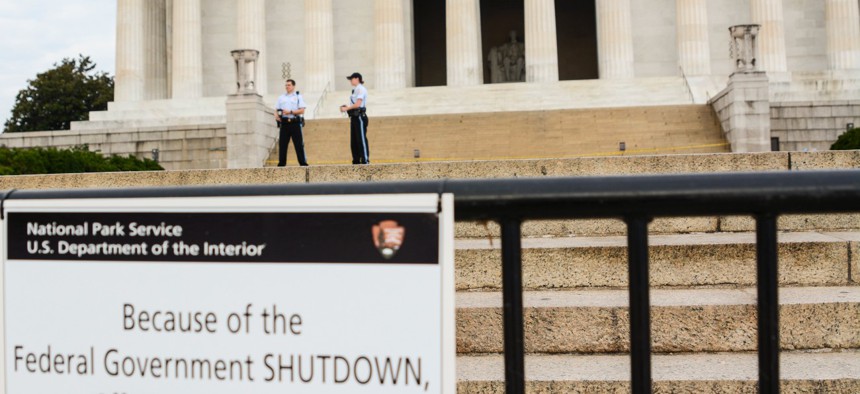
Flickr user Scott Kirkwood/NPCA
OPM Moves to Implement Protections for Feds During Shutdowns
The 2020 Defense policy act included provisions ensuring federal workers would be able to change their insurance coverage due to a significant life event during a lapse in appropriations and protecting them from gaps in supplemental health care plans.
The Office of Personnel Management on Friday moved to implement a recently enacted law increasing protections for federal workers in the event of a government shutdown.
Last December, Congress passed the 2020 National Defense Authorization Act, which served as a vehicle for a number of policies affecting the entire federal workforce. Included in that bill was a provision authorizing 12 weeks of paid parental leave for federal employees, as well as a number of measures intended to reduce the burden borne by federal employees during appropriations lapses.
In proposed regulations slated to be published in the Federal Register on Monday, officials at the Office of Personnel Management formally began the implementation process for those shutdown protections.
The new rules would clarify that services associated with the Federal Employees Health Benefits Program and Federal Employees’ Group Life Insurance are considered “emergency services” under the Antideficiency Act. So-called essential services are exempt from furloughs required under the Antideficiency Act if there is a lapse in appropriations.
During the 35-day partial government shutdown that began in late 2018, many federal employees reported being unable to update their FEHBP insurance policies to account for the birth of a child, because the agency officials responsible for enrolling workers were furloughed.
“The government may continue to employ federal officers and employees to perform such emergency services related to the FEGLI and FEHB programs,” OPM wrote. “[These] services include, but are not limited to, activities related to enrollment, changing enrollment, temporary extension of coverage and conversion, eligibility and matters related to reemployed annuitants and survivor annuitants.”
The regulations also ensure that employees who are furloughed or working without pay due to a lapse in appropriations are eligible to make changes to their insurance coverage due to a significant life event despite the fact that they are technically in a “non-pay status.”
The regulations also ensure that supplemental insurance plans like the Federal Employees Dental and Vision Insurance Program and the Federal Long Term Care Insurance Program will not lapse during an extended government shutdown. Currently, if federal workers are in a nonpay status for two consecutive pay periods, their insurance provider will begin billing them directly, and can cancel benefits for nonpayment.
“Under the [fiscal 2020 Defense Authorization Act], FLTCIP [and FEDVIP] premiums will be paid to the carrier from enrollees’ back pay made available as soon as practicable upon the end of such [an appropriations] lapse,” OPM wrote. “If the enrollee has elected to pay premiums by a method other than payroll deduction, the enrollee may continue to pay premiums pursuant to such election.”
OPM has yet to propose regulations related to the new benefit providing up to 12 weeks of paid leave for federal employees following the birth, adoption or foster placement of a new child, although officials have indicated the program will be in place by Oct. 1.
NEXT STORY: Burning Benefits Questions







